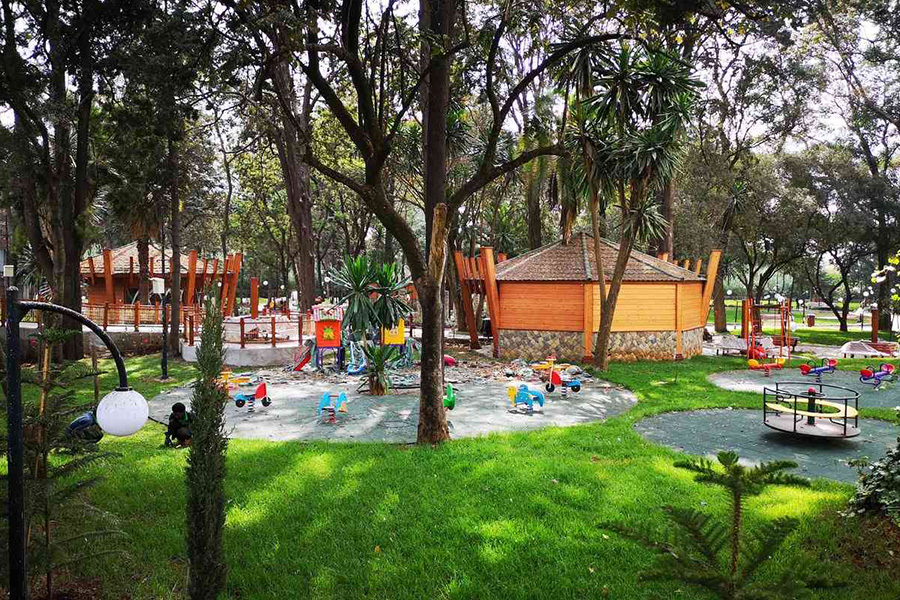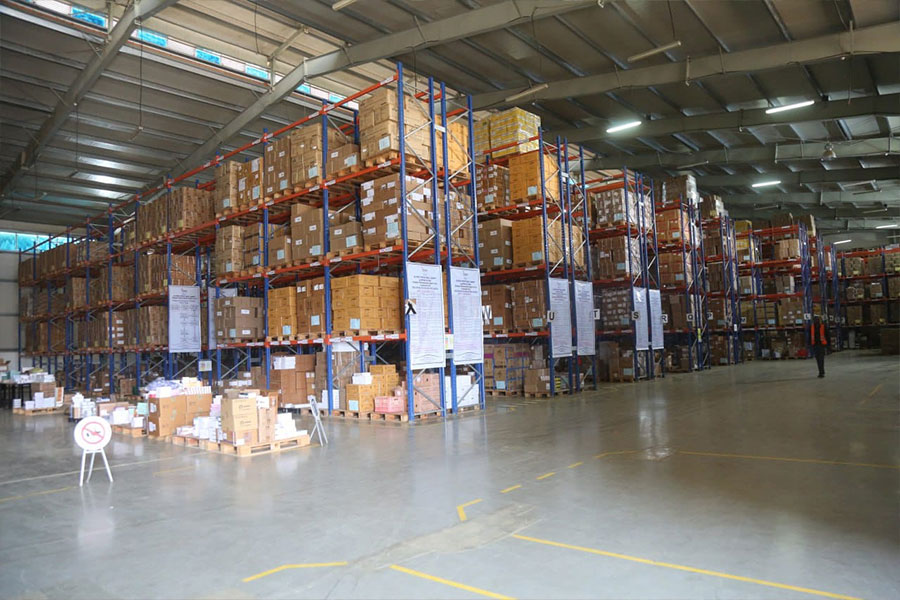
Commentaries | Oct 22,2022
Federal authorities' efforts to secure sufficient fertiliser for the vast agricultural sector have hit a snag, as a recent international tender failed to attract enough bidders to meet farmers' needs. The Ethiopian Agricultural Businesses Corporation (EABC) sought to procure 1.27 million metric tons of DAP but received offers for only 890,000tns at an average price of 648 dollars a ton. The shortfall leaves a worrying gap in the Ministry of Agriculture's plan to buy 2.4 million tons of fertiliser this fiscal year.
Eight companies participated in the tender that opened last week, submitting freight-on-board (FOB) prices from Russia, China, Saudi Arabia, and the United Arab Emirates (UAE). Established firms like Montage Oil, West Trade, Promising International, Aditya Birla Global Trading (ABGT), and ETG were among the bidders, alongside newer entrants such as Bio Green, Mebek, and CPTDC.
Montage Oil bid for two lots totalling 120,000tns of DAP, while Promising International Trading competed for four lots, each containing 65,000tns. Promising International offered the lowest price for any lot, quoting 636 dollars a ton from Russia. West Trade submitted bids at 645 dollars and 650 dollars a ton FOB China, and ABGT offered 650 dollars a ton from China. ETG tabled the highest bid at 663 a ton from China.
The Corporation's executives, under its CEO, Kifle Woldemariam, will assess the bids before forwarding them to a national technical team comprising experts from the Corporation, the ministries of finance and agriculture. A board led by Girma Amente (PhD), minister of Agriculture, will make the final decision.
With authorities budgeting 1.3 billion dollars and 156 billion Br for the procurement of DAP and Urea fertilisers this fiscal year, the higher-than-expected DAP prices signal federal authorities may need to allocate additional funds. Last year, the federal government spent 930 million dollars on fertilisers, with federal subsidies amounting to 15 billion Br. This year, subsidies have increased dramatically to 53 billion Br, a 253pc jump, illustrating escalating costs in the international market.
"We've become like traders," Minister Girma told Fortune, referring to the new board formed by the Ministry of Agriculture, which is mandated to buy fertilisers at opportune times when prices are low, contrasting with the rigid bids of previous years.
The shortfall in response to the bids has prompted the Corporation to consider alternative approaches to meet fertiliser requirements.
"Retendering is an option, along with high-level negotiations that may include leaders," said Gashaw Aychiluhim, the Corporation's head of corporate communications and social responsibility.
International trade expert Yonatan Tadesse blamed the Corporation's procurement procedures for being protracted and costly.
"Its bidding process takes too long from preparation to completion," he said.
He argued that the lack of bidders unveils systemic issues with national creditworthiness.
"International companies, relying on rating agencies, perceive risks in our payment ability, deterring their participation," Yonatan said.
He urged the Corporation to restructure the tender lots and re-advertise.
According to the Ministry of Agriculture's first-quarter report, the plan was to buy and distribute 2.4 million tons of fertiliser this year, of which 1.33 million tons is DAP. Last year, two million tons were bought, with 1.65 million tons distributed. The Ministry has already dispatched 512,201tns in the first quarter.
Notably, NPS fertilisers are not on this year's tender list. A three-year study by the Agricultural Transformation Institute (ATI) found that NPS is too acidic for soil in Ethiopia. Its researchers recommended that the country's soil requires only two types of fertilisers; urea should cover 65pc of the needs.
The Ministry presented its 100-day report last week with a positive outlook. Minister Girma announced ambitious plans and high performance from autumn farming, wheat production and agricultural inputs to animal husbandry, natural resource development and safety net programs. The Ministry expects to collect 140 million tons of agricultural produce farmed on 30 million hectares, with 3.4 million hectares already farmed in the first quarter, yielding 8.3 million tons.
According to the Ministry's data, cluster farming covered 11.8 million hectares, an increase from 8.6 million hectares last year, while mechanised farming was deployed on 25pc of farms. However, the Minister conceded that machine-aided farming needs to be further expanded.
Agroeconomics expert Assefa Tilahun (PhD) took an issue with the government's focus. He attributed the lack of roads to tractors and combiner harvesters unable to reach farms.
"The machine-led farm industry is still in its infancy," he said. "There is not enough infrastructure for the machines."
According to Assefa, smallholding farmers, especially in the country's lowlands, point to scarce labour that mechanisation could address. Security issues have also frustrated the easy flow of labour across regions. He cited an example in Metema, where the daily cost of a farm labourer has increased from 300 Br to 1,000 Br.
"Increased wages do little to save post-harvest losses of 35pc to 40pc," said Assefa.
This year, the Ministry has designated 4.2 million hectares for wheat irrigation across all regions, expecting to produce 173 million quintals. Including smallholder and dual-season production, the authorities hope to see wheat cultivation on 8.2 million hectares, with an anticipated produce of 300 million quintals.
Assefa has other ideas. He urged policymakers to encourage the horticulture industry where the shelf life of produce is limited.
"Companies like tomato salsa makers have to be better organised," he said.
According to official data, the agricultural sector generated 76pc of last year's foreign currency earnings. In the first quarter of this year, agricultural produce generated 796 million dollars, a 21pc increase from last year, with coffee bringing in 519 million dollars. There are plans to reach two billion dollars in coffee exports this year.
PUBLISHED ON
Nov 03,2024 [ VOL
25 , NO
1279]

Commentaries | Oct 22,2022

Fortune News | Feb 11,2023

Verbatim | Oct 20,2024

Commentaries | Jan 27,2024

Radar | Dec 25,2023

Fortune News | Jan 03,2025

Money Market Watch | Apr 13,2025

Commentaries | Feb 24,2024

Viewpoints | Oct 18,2025

Commentaries | Jul 18,2021

Dec 22 , 2024 . By TIZITA SHEWAFERAW
Charged with transforming colossal state-owned enterprises into modern and competitiv...

Aug 18 , 2024 . By AKSAH ITALO
Although predictable Yonas Zerihun's job in the ride-hailing service is not immune to...

Jul 28 , 2024 . By TIZITA SHEWAFERAW
Unhabitual, perhaps too many, Samuel Gebreyohannes, 38, used to occasionally enjoy a couple of beers at breakfast. However, he recently swit...

Jul 13 , 2024 . By AKSAH ITALO
Investors who rely on tractors, trucks, and field vehicles for commuting, transporting commodities, and f...

Nov 1 , 2025
The National Bank of Ethiopia (NBE) issued a statement two weeks ago that appeared to...

Oct 25 , 2025
The regulatory machinery is on overdrive. In only two years, no fewer than 35 new pro...

Oct 18 , 2025
The political establishment, notably the ruling party and its top brass, has become p...

Oct 11 , 2025
Ladislas Farago, a roving Associated Press (AP) correspondent, arrived in Ethiopia in...